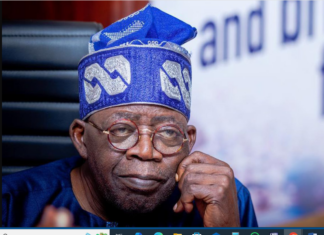The Petroleum Industry Bill (PIB) 2020, a proposed law seeking to introduce far-reaching industry reforms in the Nigerian oil and gas sector contains provisions aimed at protecting the environment against the adverse impact of oil and gas operations which can cause damage to public and private property, indigenous communities, and their livelihoods.
Consistent with the bill’s reform agenda, it will amalgamate and repeal16 extant oil and gas legislations and remedy some of their notable shortcomings such as duplicative regulation, weak enforcement of standards, overlapping regulatory powers, hostility between operators and host communities etc. Against this backdrop, this briefer weighs the adequacy of the new PIB provisions to respond to the gaps in extant environmental regulations and deliver the bill’s intended policy objectives.
This briefer builds on the organization’s PIB RESOURCE HANDBOOK published in 2013, which exhaustively examined the provisions of the 2012 version of the PIB relating to environmental protection and community participation.
Summary of Observations:
* Oil industry operations are stratified into upstream and downstream petroleum sectors, administered by the Nigerian Upstream Regulatory Commission (The Commission) and the Nigerian Midstream and Downstream Petroleum Regulatory Authority (The Authority) respectively.
* The Commission and The Authority bear responsibility to ensure strict implementation of environmental policies, laws and regulations for upstream and downstream petroleum operations respectively. In doing this, they will adopt both penal and corrective measures to enhance industry compliance to environmental regulations not limited to suspension, modification and revocation of licenses, compensation, penalties and fines for violators.
* Some of the expansive regulatory powers for environmental matters in the petroleum industry vested on the Commission and Authority overlaps with the statutory responsibilities of the Oil and Gas Division of the Federal Ministry of Environment (FMOE). This means that the overlapping regulatory powers between enforcement agencies persist which could offer polluters the advantage of cherry-picking which regulator to obey.
* Gas flaring is not expressly prohibited. Gas flaring will be condoned in certain circumstances such as where it is required for facility start-up, or for strategic operational reasons, including testing. Absent a specified limit to the scope of operational reasons, this could be exploited to harm the environment, increasing communities’ vulnerability to health hazards.
* With regard to the Environmental Remediation Fund, the Commission or Authority doubles as the Fund manager and the facilitator of investigation and remediation of sites that pose risks to human health and the environment.
Consistent with the bill’s objective to create efficient governing institutions with clear and separate roles, the management of the remediation fund should be vested in the National Oil Spill Detection and Remediation Agency (NOSDRA) that is already charged with the mandate to carry out remediation of oil-impacted sites.
* The procedure and mechanism individuals and communities can use to access compensation for environmental damage is unclear. Environmental regulations and mechanisms remain relevant and effective when they can provide meaningful opportunities (including online) for the public to make contributions, while delivering the necessary level of protection to all stakeholders.
*The PIB obligates operators, called settlers, to create a Host Communities Development Trust. The utilization of this fund will take into consideration the host community needs from a social, environmental, and economic perspective. The institutional arrangements proposed for the administration of the host community trust is heavily-flawed, disempowering, and perpetuates power asymmetries between locals and multinational.
This briefer is authored by SPACES FOR CHANGE
Contact (victoria@spacesforchange.org)













